#11. Vertigo (1958)
– Director: Alfred Hitchcock
– Stacker score: 95.3
– Metascore: 100
– IMDb user rating: 8.3
– Runtime: 128 minutes
Nothing is as it seems in “Vertigo,” an Alfred Hitchcock classic based on Boileau-Narcejac’s 1954 novel “D’entre les morts” (“From Among the Dead”). In the film, a former police detective (James Stewart) is hired to trail a friend’s wife (Kim Novak) who’s been acting strangely and may be at risk of harming herself. The otherwise mundane gig goes haywire as the private investigator becomes obsessed with the woman and Hitchcock shares his most revelatory, personal production of his career. The classic Hitchcock film was preserved in the National Film Registry in 1989.
You may also like: 100 best international movies of all time
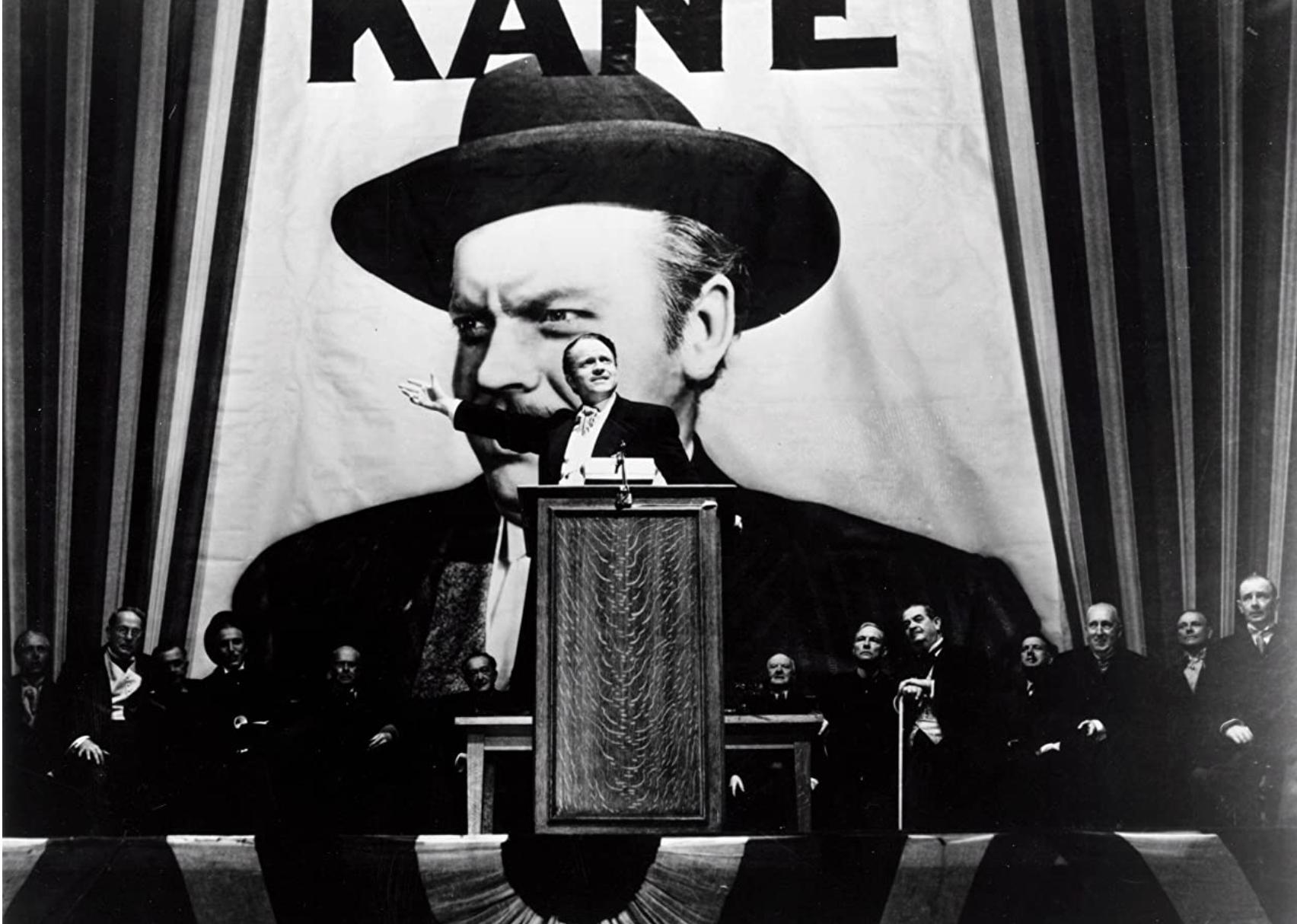
91 / 100
RKO Radio Pictures
#10. Citizen Kane (1941)
.- Director: Orson Welles
– Stacker score: 95.3
– Metascore: 100
– IMDb user rating: 8.3
– Runtime: 119 minutes
Here’s a movie so great that when something else is likewise terrific, that thing is often referred to as the “Citizen Kane” of its respective arena. Accordingly, this 1941 film—which depicts the ambitious rise of newspaper magnate Charles Foster Kane (Orson Welles)—has only gotten better with age. It might no longer retain the #1 spot on lists of the greatest films, including this one, but ask the right cinephiles, and they will likely assert “Citizen Kane” is still the best movie of them all. Despite garnering nine Academy Awards, the film only walked away with one, for Best Original Screenplay.
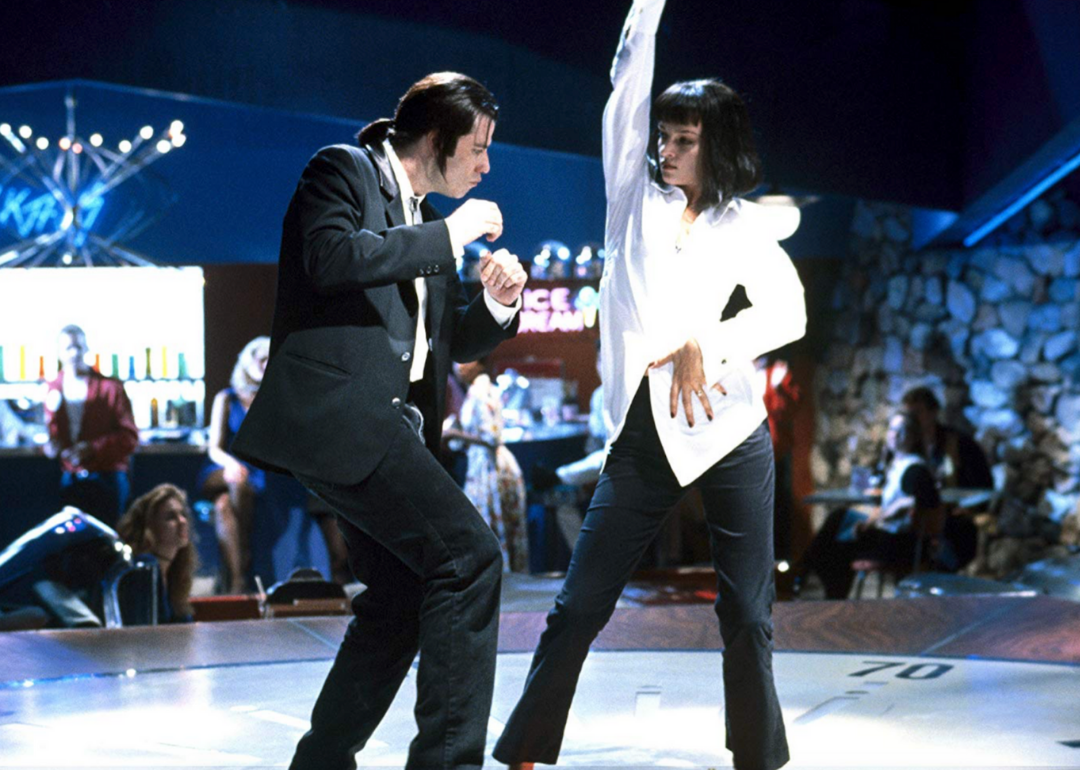
92 / 100
Miramax
#9. Pulp Fiction (1994)
– Director: Quentin Tarantino
– Stacker score: 95.3
– Metascore: 94
– IMDb user rating: 8.9
– Runtime: 154 minutes
Quentin Tarantino’s second directorial effort arguably remains his most quintessential work. Interweaving three violent stories—while simultaneously paying homage to a host of influences— “Pulp Fiction” is quite simply the stuff that great cinema is made of. Speaking of influences, the hit film was happy to pay it forward, inspiring a wave of upcoming auteurs. In 2013, “Pulp Fiction” was chosen for preservation in the National Film Registry.
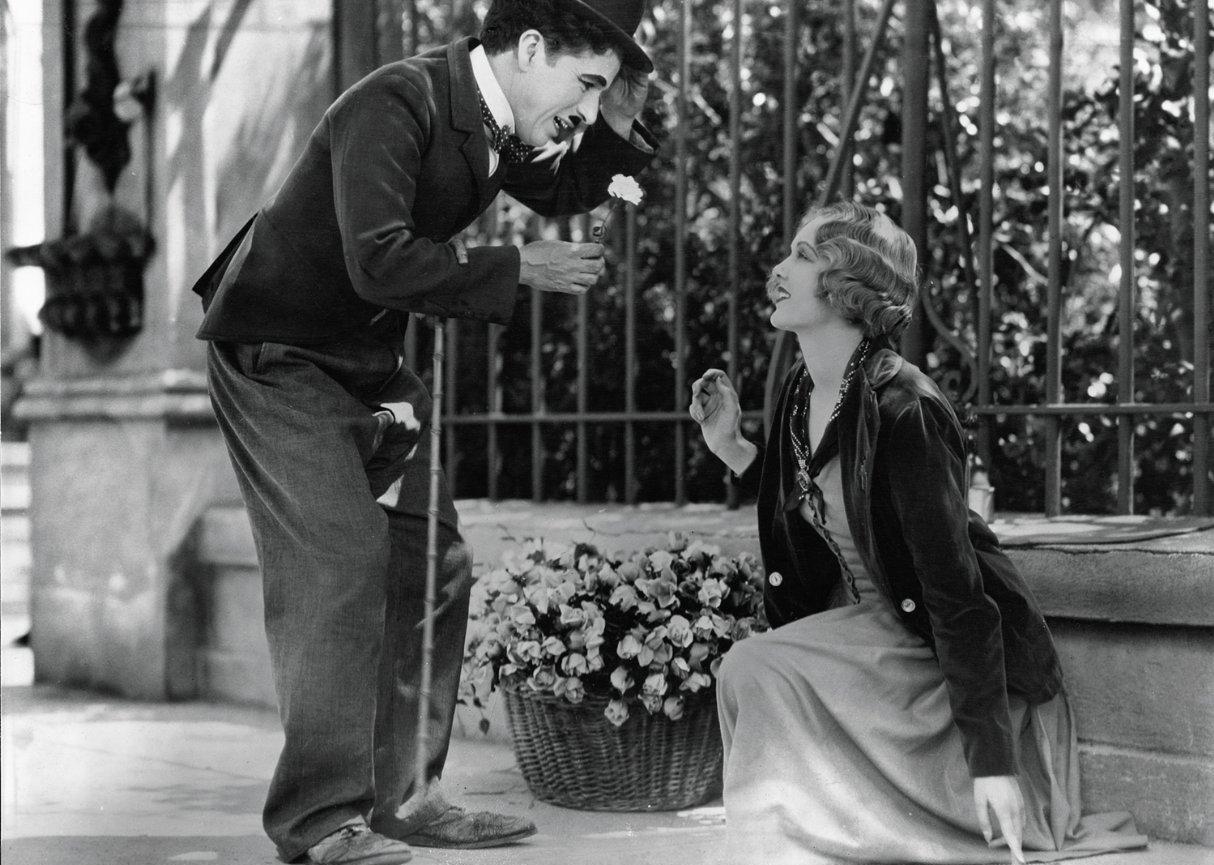
93 / 100
Charles Chaplin Productions
#8. City Lights (1931)
– Director: Charles Chaplin
– Stacker score: 95.8
– Metascore: 99
– IMDb user rating: 8.5
– Runtime: 87 minutes
Sticking to his well-established roots, Charlie Chaplin released this primarily silent film three years into the talkie era. Rife with signature pantomime, it follows The Tramp (Chaplin) as he resorts to various extremes while trying to make a buck. It all paves the way for one of cinema’s most unforgettable final scenes, during which the story’s underlying pathos is laid bare. Hailed as being one of the greatest and most inspiring films, “City Lights” went on to be preserved by the Library of Congress in the National Film Registry in 1991.
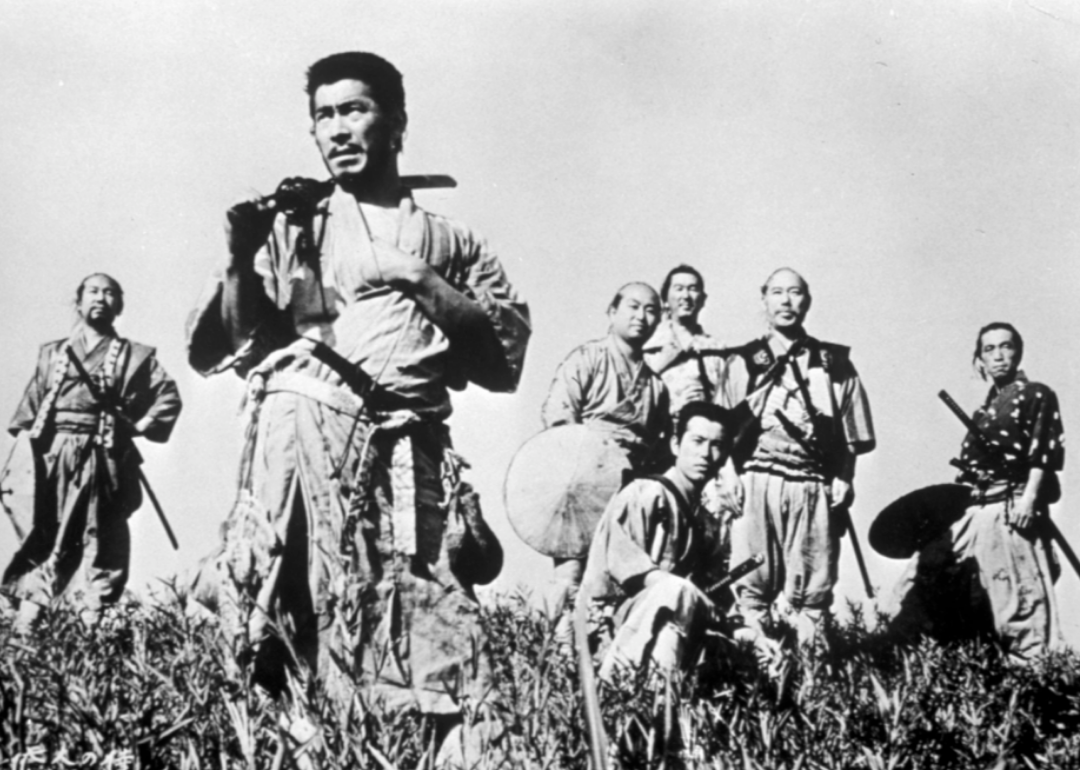
94 / 100
Toho Company
#7. Seven Samurai (1954)
– Director: Akira Kurosawa
– Stacker score: 95.8
– Metascore: 98
– IMDb user rating: 8.6
– Runtime: 207 minutes
In this three-hour epic, farmers from a village targeted by bandits hire a veteran samurai and his six companions to help defend them. Featuring iconic Japanese actors like Takashi Shimura and Toshiro Mifune, the movie manages to deliver both breathless action and a rich tale of human resilience. It’s also known for its centerpiece battle, when 40 bandits attack the central village.
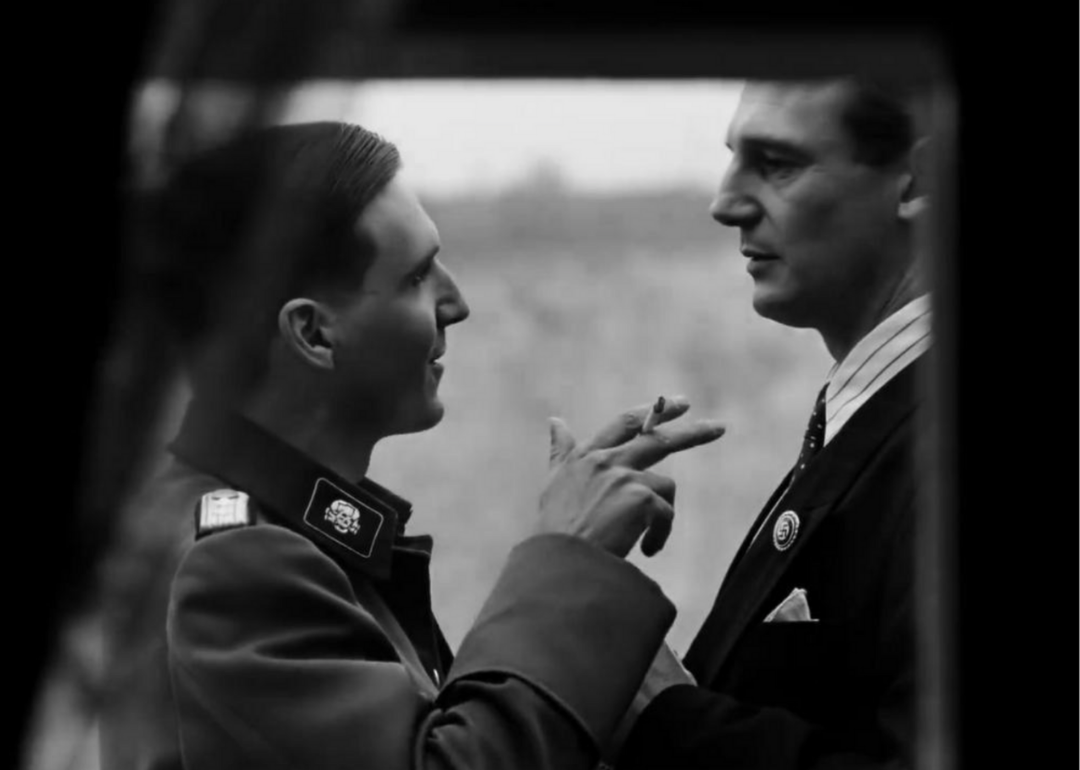
95 / 100
Universal Pictures/Amblin Entertainment
#6. Schindler’s List (1993)
– Director: Steven Spielberg
– Stacker score: 95.8
– Metascore: 94
– IMDb user rating: 9
– Runtime: 195 minutes
While Steven Spielberg was no stranger to serious fare by the early 1990s, he nevertheless caught audiences by surprise when he released this award-winning drama. It tells the true story of Oskar Schindler, a German industrialist who ultimately saved 1,100 Jewish lives during the Holocaust. Spielberg forewent a salary when making the film, and donated the profits to a charitable foundation. The movie was nominated for 12 Academy Awards, winning seven, including Best Picture, Best Director, and Best Adapted Screenplay.
You may also like: Biggest box office bombs of all time
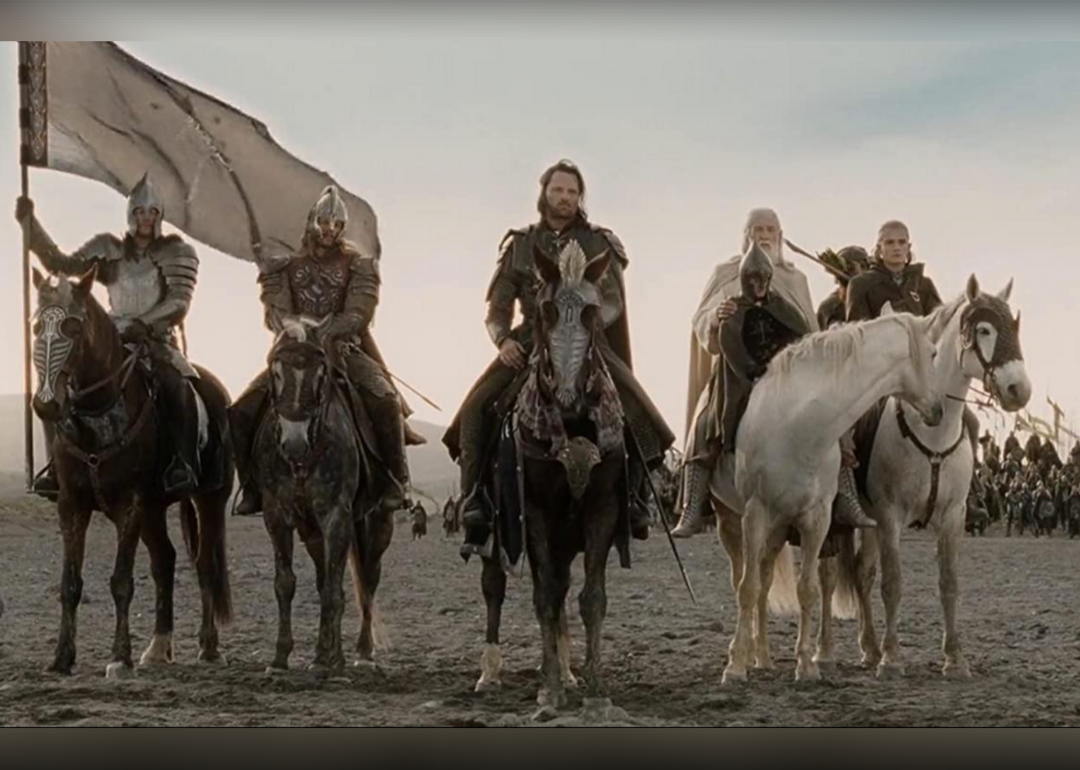
96 / 100
New Line Cinema
#5. The Lord of the Rings: The Return of the King (2003)
– Director: Peter Jackson
– Stacker score: 95.8
– Metascore: 94
– IMDb user rating: 9
– Runtime: 201 minutes
In the final installment of Peter Jackson’s Lord of the Rings trilogy, the forces of good and evil do battle over the fate of Middle Earth, while Frodo reaches the last leg of his journey. Not only did the film earn more than $1 billion dollars at the box office, but it won 11 Academy Awards out of 11 nominations, giving it the highest perfect score in Oscar history. It also tied with “Ben-Hur” and “Titanic” for the film with the most Oscar wins.
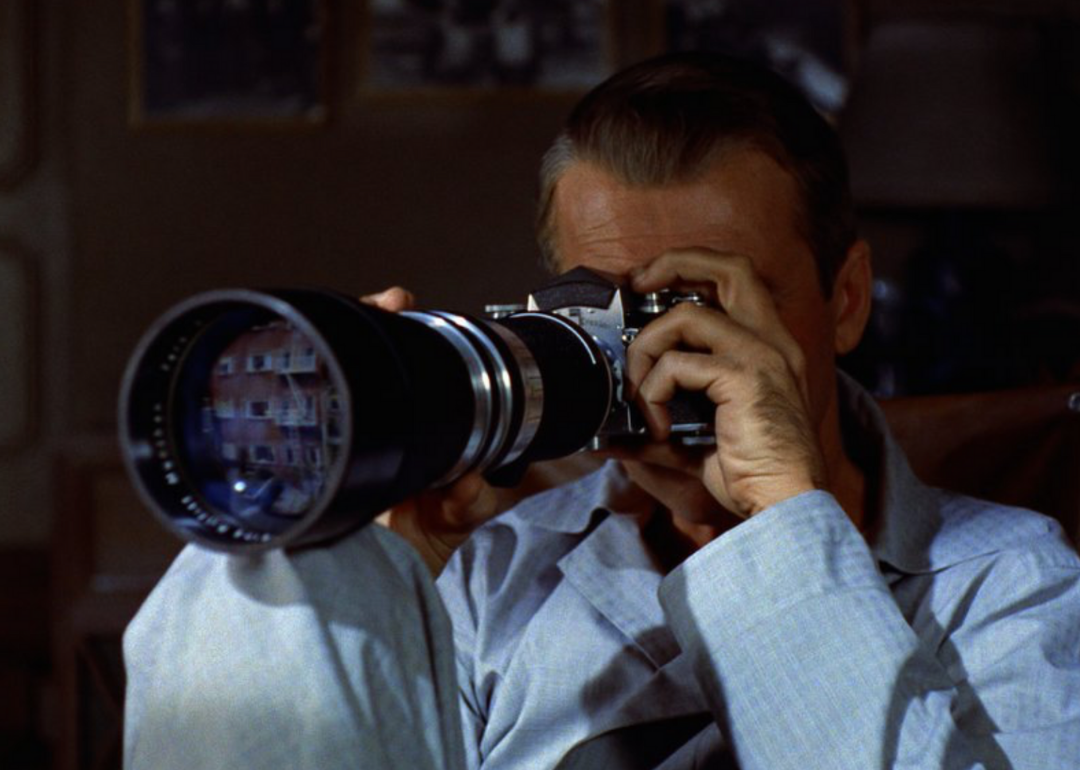
97 / 100
Paramount Pictures
#4. Rear Window (1954)
– Director: Alfred Hitchcock
– Stacker score: 96.4
– Metascore: 100
– IMDb user rating: 8.5
– Runtime: 112 minutes
In addition to striking the perfect balance of intrigue and suspense, this 1954 Hitchcock film endures through its perennial relatability. After all, who hasn’t wondered what their neighbor might be up to behind closed doors? In “Rear Window,” the answer is potentially murder. Or is a wheelchair-bound James Stewart simply letting his paranoia get the best of him? To say anything more is to spoil the fun of watching this classic for the first time. The movie earned four Academy Award nominations, including Best Director and Best Adapted Screenplay.
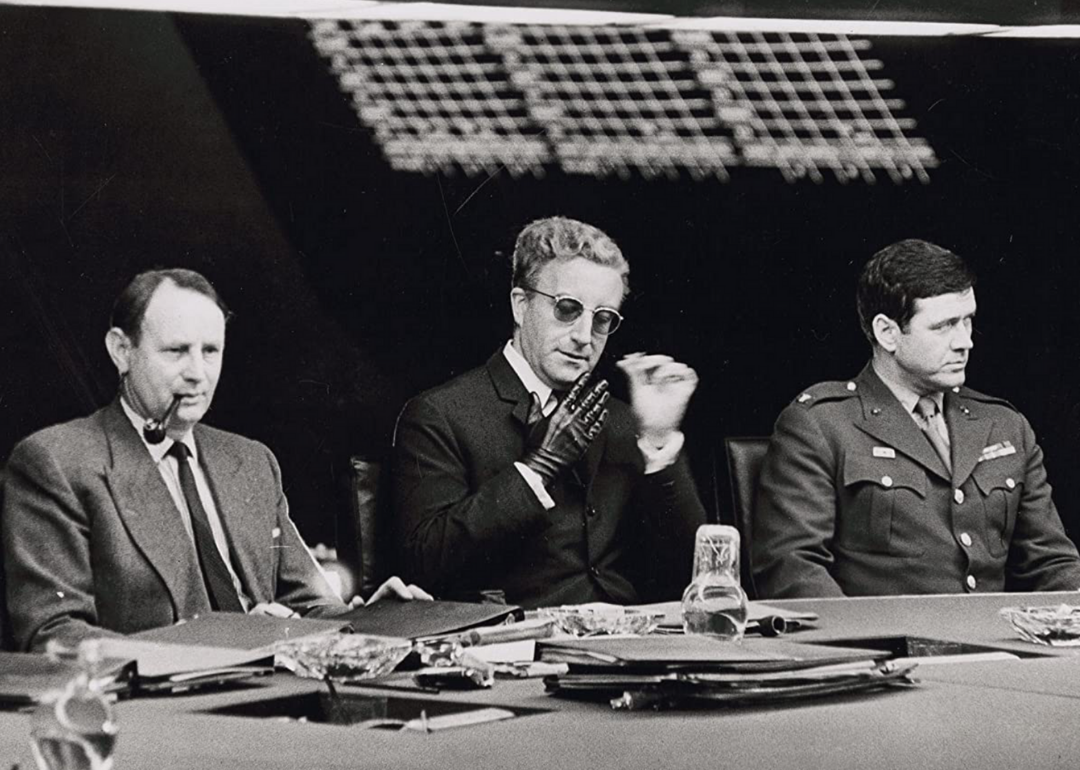
98 / 100
Columbia Pictures Corporation
#17. Dr. Strangelove or: How I Learned to Stop Worrying and Love the Bomb (1964)
– Director: Stanley Kubrick
– Stacker score: 94.3
– Metascore: 97
– IMDb user rating: 8.4
– Runtime: 95 minutes
Acclaimed director Stanley Kubrick enters the list with 1964’s “Dr. Strangelove or: How I Learned to Stop Worrying and Love the Bomb,” a movie that puts the “dark” in dark comedy. In the film, a series of miscommunications lead to a nuclear showdown between the world’s most powerful nations. As intentionally ridiculous as the movie is, an early version of the script was even more so, with aliens watching the whole fiasco from space. The film garnered four Academy Award nominations, including Best Picture, Best Actor, and Best Director.
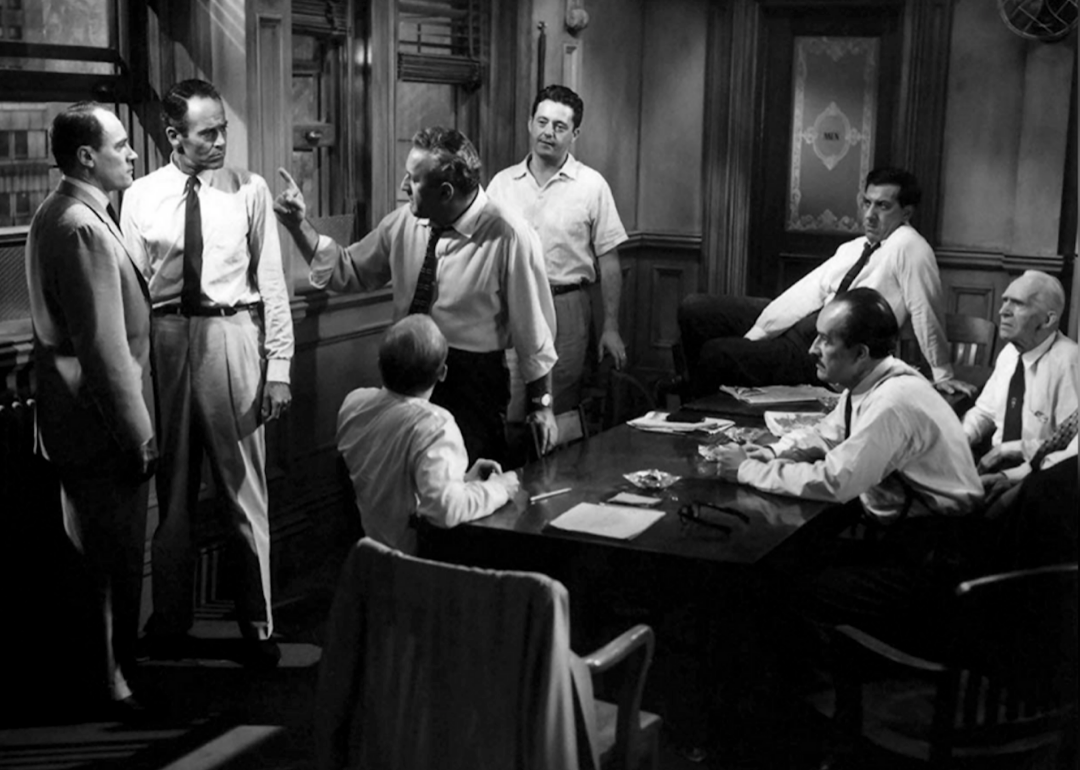
99 / 100
Orion-Nova Productions
#2. 12 Angry Men (1957)
– Director: Sidney Lumet
– Stacker score: 96.9
– Metascore: 96
– IMDb user rating: 9
– Runtime: 96 minutes
In this taut 1957 drama from Sidney Lumet, 12 jurors determine the fate of a suspected murderer. What starts as an open-and-shut case becomes something far more complex, as a lone holdout convinces the others that the defendant might not be guilty after all. As the debate unfolds, each juror’s own respective prejudices bubble to the surface, with all the action taking place inside the jury room. In 2007, the film was chosen for preservation in the National Film Registry by the Library of Congress.
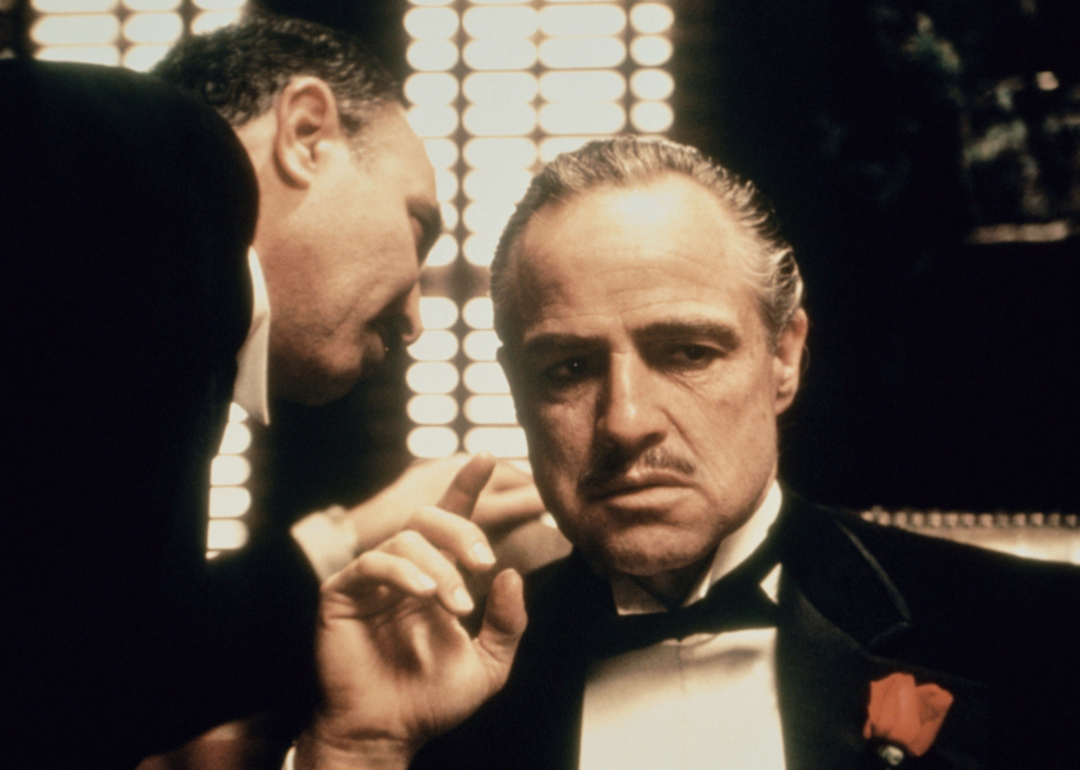
100 / 100
Paramount Pictures
#1. The Godfather (1972)
– Director: Francis Ford Coppola
– Stacker score: 100
– Metascore: 100
– IMDb user rating: 9.2
– Runtime: 175 minutes
Stanley Kubrick himself used to reluctantly theorize that “The Godfather” was the greatest movie ever made, and most audiences and critics agree. Chronicling the exploits of the Corleone crime family, this 1972 masterpiece delivers everything one could ask for in a film, fusing elements of drama, violence, and suspense to absolute perfection. Indeed, there’s virtually no aspect of “The Godfather” that doesn’t remain iconic to this day, hence its status as the best movie of all time. The film had a huge turnout at the 45th Academy Awards, winning Best Picture, Best Actor (Marlon Brando), and Best Adapted Screenplay.
Audiences have been enraptured by cinema since 1895 when Auguste and Louis Lumière used a cinematograph machine to project moving images onto a screen. Naturally, movies have come a long way since the early days of 50-second reels, resulting in a rich variety of styles—many of which are easily streamed right from home. Every cinematic era has put forth its respective slate of timeless masterpieces.
The best movies arguably represent the pinnacle of artistic achievement in the modern era and that makes them worth celebrating over and over again. To explore the 100 best films of all time, Stacker analyzed IMDb ratings and Metascores to create a score equally weighting the two. To qualify, each movie needed at least 20,000 votes on IMDb and a Metascore. Ties were broken by IMDb user votes. Films of all languages and from all countries were considered.
Great films usually deliver the goods on multiple fronts. That means everything from the writing to the music to the acting is memorable, if not downright iconic. At the end of the day, of course, there is no one solitary answer as to what makes a great movie—just like there is no one type of great film.
Counting down from #100, here are the best movies of all time.
You may also like: Why these famous films were banned around the globe
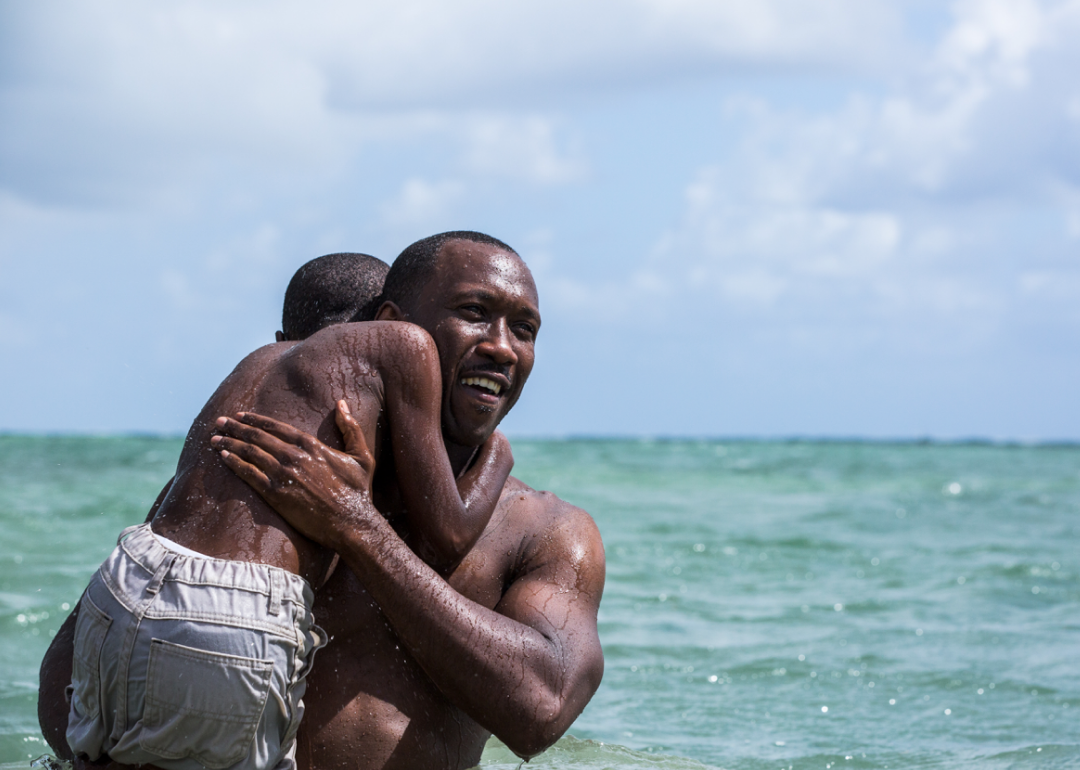
1 / 100
A24
#100. Moonlight (2016)
– Director: Barry Jenkins
– Stacker score: 90.1
– Metascore: 99
– IMDb user rating: 7.4
– Runtime: 111 minutes
Divided into three segments, this prescient drama follows young Chiron (Ashton Sanders) on his path to self-discovery. Brought to life with vivid color and precision, the story grapples with themes of poverty and identity. “Moonlight” won three Academy Awards, including Best Picture. Mahershala Ali made history as the first Muslim to win an acting Oscar.
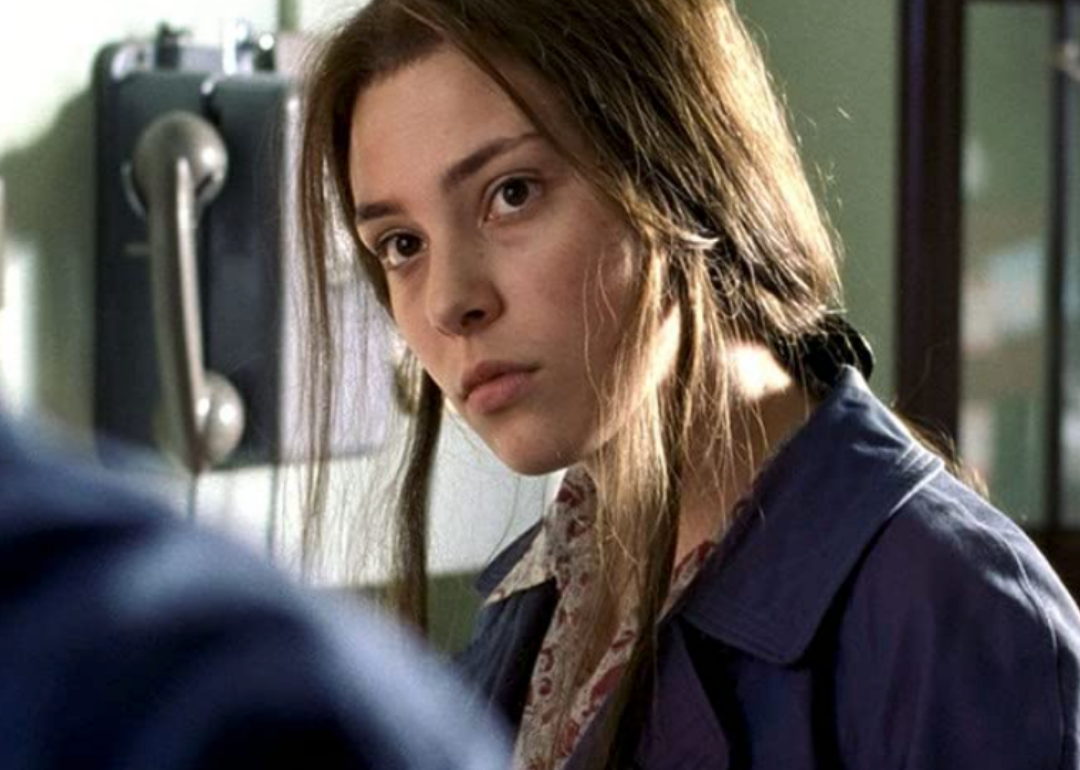
2 / 100
BiBi Film
#99. The Best of Youth (2003)
– Director: Marco Tullio Giordana
– Stacker score: 90.6
– Metascore: 89
– IMDb user rating: 8.5
– Runtime: 366 minutes
“The Best of Youth” follows middle-class Italian brothers Nicola (Luigi Lo Cascio) and Matteo (Alessio Boni) over nearly 40 years, as they come of age and search for meaning amid post-World War II upheaval. Because of its lengthy runtime, the film was released as a pair of three-hour films. It won the “Prize Un Certain Regard” at the 2003 Cannes Film Festival. As film critic Peter Bradshaw notes, “The Best of Youth” is a notable example of Italian films that track history through an extensive family saga. Other examples include “The Leopard” and “Rocco and His Brothers.”
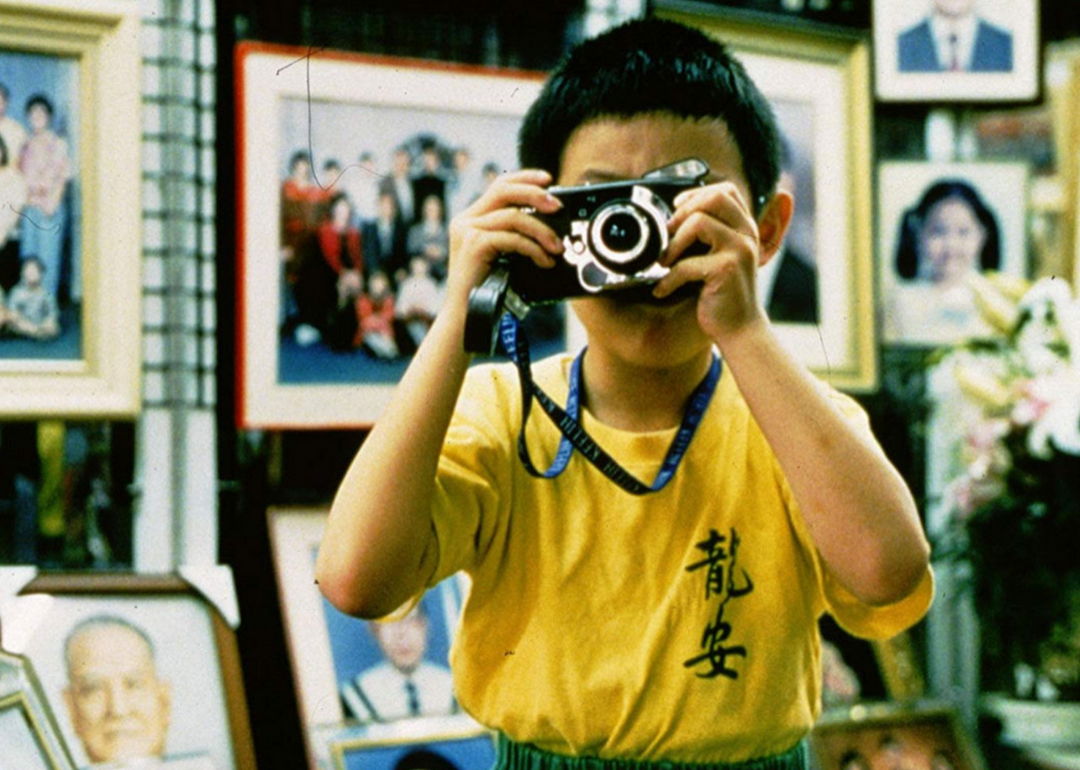
3 / 100
1+2 Seisaku Iinkai
#98. Yi Yi (2000)
– Director: Edward Yang
– Stacker score: 90.6
– Metascore: 93
– IMDb user rating: 8.1
– Runtime: 173 minutes
This generational Taiwanese drama follows the plight of engineer NJ (Wu Nien-jen), and how his actions affect three generations of his middle-class family. Director Edward Yang received particular acclaim for “Yi Yi,” taking home Best Director at the 2000 Cannes Film Festival for the film. Its Chinese title can be translated to the phrase “one by one,” or “one after another.”

